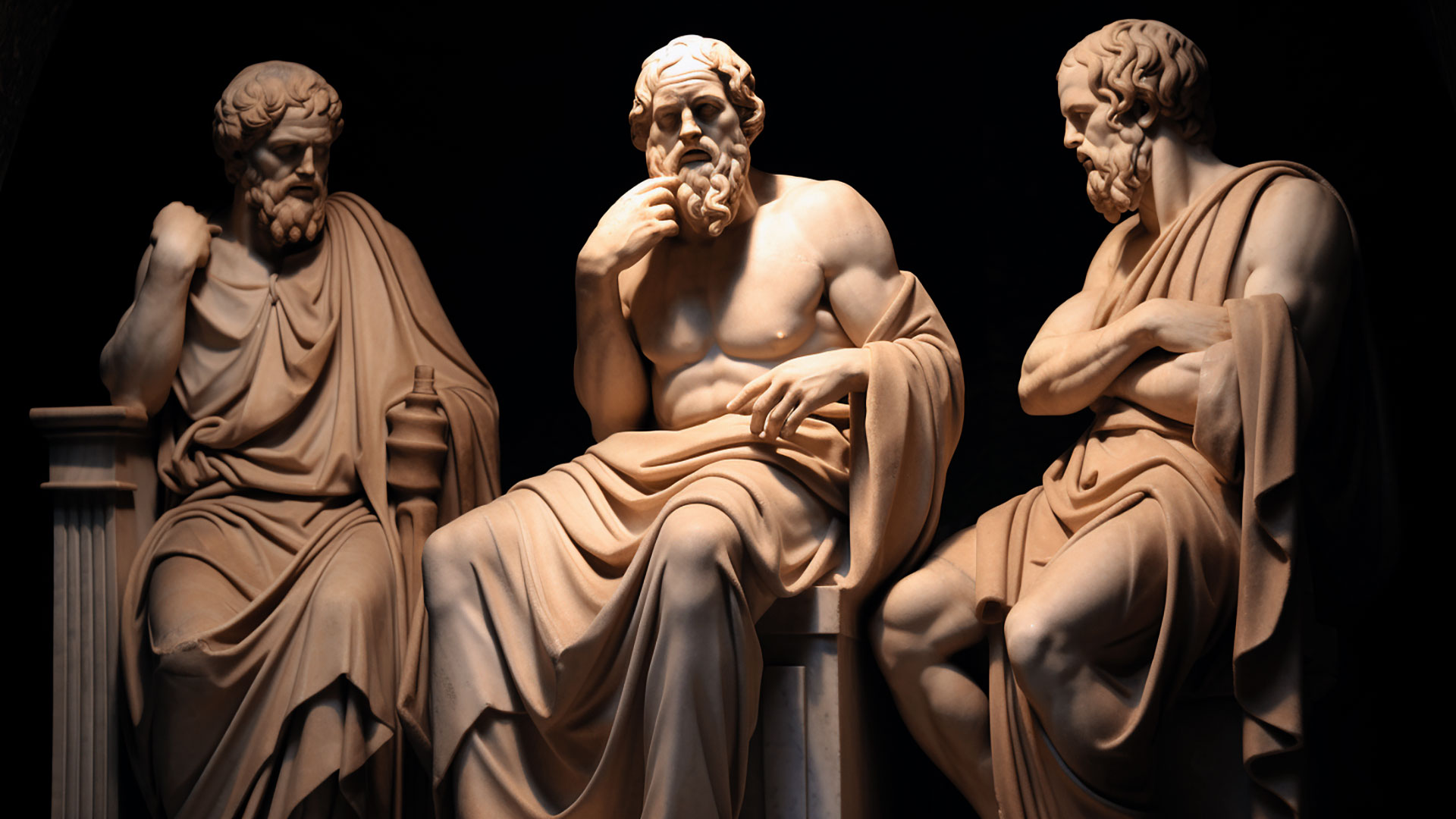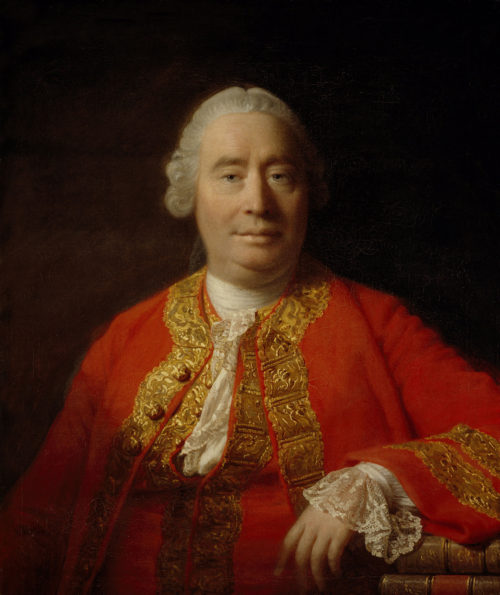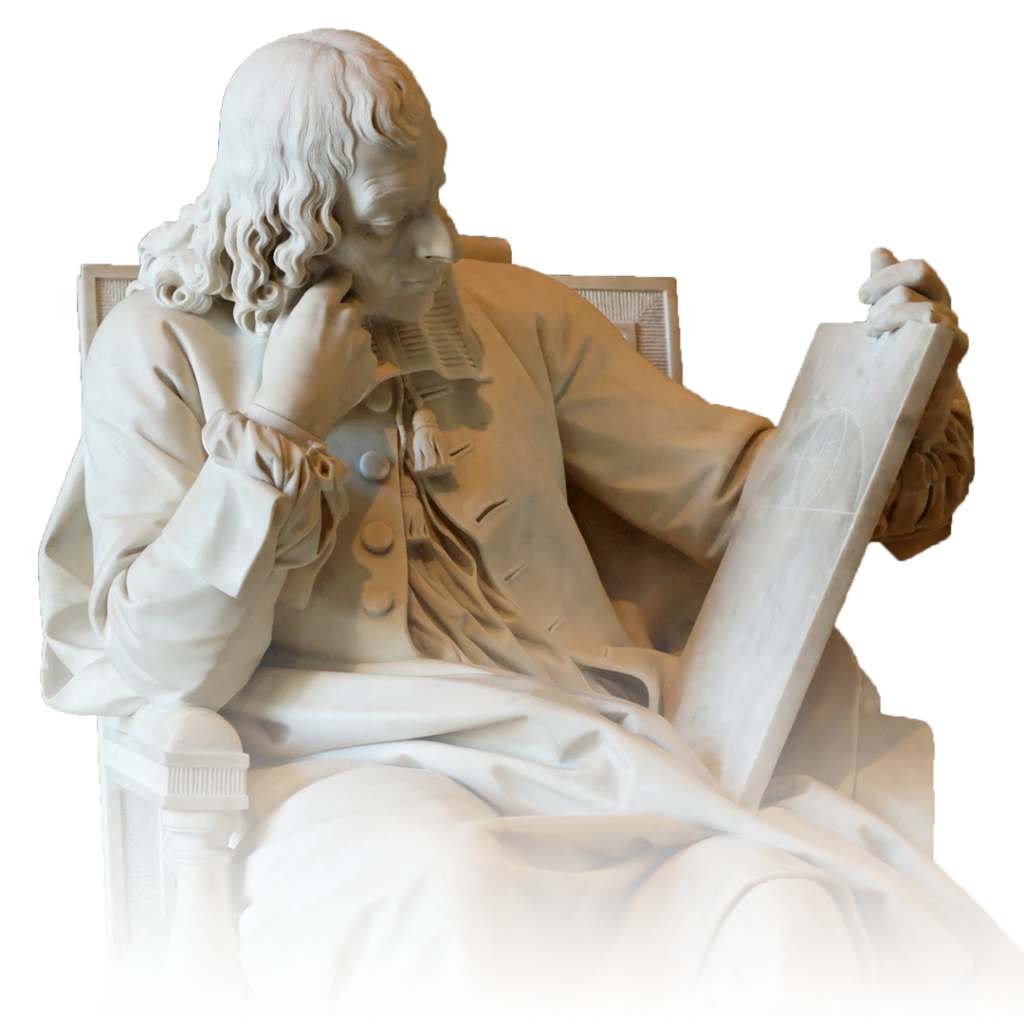- less probable
- nature is all that it is
- science is infallible
- extraordinary claim requires extraordinary evidence
- God of the gap
- miracles are superstitions
- miracles violate the laws of nature
- miracles can never happen
- Occam’s razor
- metaphysical things exists
- scientism is false
- materialism don’t explain everything
- burden of proof is also on atheists
- not everything can be a coincidence
- laws of nature requires a Legislator
- necessity of morality in science
Atheism & miracles

A pre-conceived worldview
Two people can be exposed to the same evidence, but end up with a different conclusion. It all comes down to people’s personal worldview (the way how we “see” the world).
As Craig Keener said…3
“Extraordinary claims requires extraordinary evidence”
Carl Sagan
Signs from God
God in the Christian world, is a loving being who wants to communicate with His creations.
Skeptics may want signs from God to prove His existence. But on the other hand, they could also say that miracles can’t happen. If someone abide by that theory, the argument itself is an absurd circular reasoning. It’s either one or the other. It’s like trying to find plastic with a metal detector.
Not everything can be a divine miracle, but not everything can only be a mere coincidence as well.

Quick analogy
If you go to the beach, and see a message written in the sand: “Good vibes only”, our first thought would be that a human being (intelligent agent) wrote it down, and not the wind or a crab. It can’t be accidental. If you go to the moon and see a crate, it’s probably natural, and not a human invention. Yet the moment that you see a flag implement on the ground, there is certainly a human presence nearby.
Let’s face it: if God does exist, then miracles are possible. If God doesn’t exist, then no miracle is possible. It’s that simple.
There’s not a lack of evidence for miracles in the world, but only a different perspective that deny the possibility of miracles to happen.
What atheists are tired of, isn’t necessarily transcendence, but superstitions (false belief). Naive believers without a critical reasoning can lead people to insanity, and outsiders are turn off by that.
That’s why in the age of scientism, it is important that we relies on facts.
Skeptics think that the more we study science, the less religious we become. No, on the contrary. Recent studies show that we found more and more evidence for God (and the Bible too). Topics like DNA, quantum mechanic, cosmology (kalam & fine-tuning), archeology all points out to the existence of God.
There’s a difference when you see an intelligent design (ex: words written on a board). You won’t assume that it happened by pure accident.
You might be disappointed, but God’s timing isn’t our timing. His plans might not match ours.
It’s fine to be skeptical (in search of the truth even if we don’t wish it was that way), but it’s totally wrong to be a cynic (rejecting the truth even if it’s true).
“Men became scientific because they expected Law in Nature, and they expected Law in Nature because they believed in a Legislator.”4
C.S. Lewis
Belief in God requires an open mind, and not a naive presumption. Theism is exciting because there are so many layers to discover.
The heart doesn’t follow
“The believers in miracles accept them (rightly or wrongly) because they have evidence for them. The disbelievers in miracles deny them (rightly or wrongly) because they have a doctrine against them.”5
G.K. Chesterton
Will supernatural events convince everyone to turn to God? Not at all. Assuming that the people at the time of Jesus saw what He did, they still refuse to believe. The problem therefore, is not the lack of evidence, proof or data.
“(…) ‘If they will not listen to Moses and the prophets, neither will they be persuaded if someone should rise from the dead.'”
Luke 16:31
Although he had performed so many signs in their presence they did not believed in him
John 12:37
2 approach: are miracles innocent until proven guilty, or are they guilty until proven innocent?
History is fill packed with miracles claims (around 1,400 in the Catholic Church from the past four centuries).
Millions of Americans claimed to have a near-death experience once in their life.
The burden of proof is on the materialist, who has to analyze and debunk each of them in order to preserve their naturalistic worldview. For the believer, only one genuine case is sufficient to prove the existence of a spiritual world.
- resurrection of Jesus
- virgin birth
- healing
- apparitions of Mary
- St. Michael
- stigmata
- incorruptibles
- levitation
- Eucharistic miracles
- exorcism
- near-death experience
The hardening of the heart (intentional denial) and/or past injuries are major obstacles to accept them. People who already made up their minds would completely ignore the data because it doesn’t match their worldview or want to avoid the conclusion to where it leads.
I want atheism to be true and am made uneasy by the fact that some of the most intelligent and well-informed people I know are religious believers. It isn’t just that I don’t believe in God and, naturally, hope that I’m right in my belief. It’s that I hope there is no God! I don’t want there to be a God; I don’t want the universe to be like that.6
Thomas Nagel
Some atheists like Matt Dillahunty will never be win over by any miracles, not because of the lack of evidence, but because they don’t want to. Partaking the ocean in the name of Jesus will never be sufficient; they will find many reasons to justify their vision as a simple defective brain chemistry or a placebo effect.
Miracles transcend the ordinary course of nature. It can be caused by God or another entity.
If God does exist, then miracles are logically possible. It’s more of an emotional issue than a rational one.
Guilt of disbelief
But on the other side, atheists aren’t entirely responsible for all their disbelief (CCC 2125). Many false claims of miracles have been believed as ‘genuine’ by naive people, causing people to completely lose their trust toward religion.
Nihilistic atheists expect perfection in this world. Because they experienced chaos & tragedy. They raise their standard so high that nothing could satisfy them (you have a bitter image of life once you tasted evil). The wound inside of them provoke a higher need for security, which could explain why they are so demanding. When you put yourself vulnerable, and get hurt, you create a ton of layers of protection.
“If my mental processes are determined wholly by the motions of atoms in my brain, I have no reason to suppose that my beliefs are true…and hence I have no reason for supporting my brain to be composed of atoms.”7
J.B.S. Haldane(atheist)
Burden of proof

Atheists also have the burden of proof, not just Christians.
They need to explain how:
- life came out of non-life
- ‘nothing’ produce everything
- randomness end up with a fine-tuned universe
- unconsciousness producing consciousness
- non-reason producing reason
Chance and pure coincidence cannot always be the best answer. For the theist, the answer is straight simple: God designed the universe.
“Christians believe in the virgin birth of Jesus. Materialists believe in the virgin birth of the cosmos. Choose your miracle.”
Glen Scrivener
Nature is made with the logic of ‘cause’ and effect’. Can science explain every single cause to a natural process?
God of the gaps
Atheists often use the ‘God of the gaps’ argument against miracles.
God cannot fail to exists because if anything exists at all, it is either contingent (depending on another cause) or necessary. And since the universe began to exists, it must rely on a more powerful force than itself, namely a supernatural cause that cannot fail to exist, in principle.
Magic or miracles
Miracles are unpredictable. Rarely they are. Cases like the dancing sun of Fatima is an example. Miracles aren’t magic. God isn’t a force or energy, He’s not ‘controllable’ by a magical formula, or an incantation like the pagan gods. God is a Father who show His presence through small actions in our daily life. Sometimes in big ways.
In pagan theology, magic is a force that is more powerful than the gods. Marduk couldn’t beat the dragon Tiamat unless he use some spells. Sorcerers use incantations to “manipulate” the realm of the gods to obey what they seek for, since each gods represented a force of nature. But the monotheistic God cannot be control, since God isn’t part of nature, but the One who created it. Therefore, nature is subject to God Himself. And if God has absolute sovereignty, it follows that whatever He wish to happen in nature, can in fact, happen.
The ancient pagans used to think that thunder was caused by Thor, as a religious belief. Today we know it’s not the case, and it can be explain scientifically. God in the Judaeo-Christian view, is beyond nature. God isn’t associated with a force of nature.
Cause beyond nature?
If we can give more time for science to discover the origin of the universe, will we ever find a naturalistic cause for it?
But that’s the thing: nature is the effect, not the cause. If nature has a beginning, then the cause cannot be inside nature (circular reasoning). It must be outside of it, which mean a ‘supernatural’ cause. It’s like giving birth to our mom.
“The moment it (miracles) enters her realm (nature) it obeys all her laws. Miraculous wine will intoxicate, miraculous conception will lead to pregnancy, inspired books will suffer all the ordinary processes of textual corruption, miraculous bread will be digested.”8
C.S. Lewis
Isn’t it fascinating to realize that God became human through a miraculous event called the Incarnation?
“…God walking on the earth is more important than man walking on the moon…”9
James Irwin (astronaut)
Miracles are when Heaven and Earth meet.
Some people can claim that instant healing was just a coincidence. Or finding a rare piece of money on the street was a miracle. In either case, we should discuss about coincidence versus miracles. Not everything can fully be a coincidence. When you see random patterns on the beach, you can conclude it was a natural cause. But if you see a message on the sand, you logically would think that an intelligent agent has wrote it down.
The limits of naturalism
Science is only capable to explain things that are within the bound of the natural world, not outside of it. Naturalism assume that nature is all that it is. What cause nature to exist must be beyond itself. A baby cannot give birth to their mom.
Human faculties are limited. A blind person might not see, but they can imagine what they are touching. Our hands cannot tell accurately the temperature of boiling water: we need a thermostat to do it, we can know that it’s hot. In the same way, science itself cannot explain everything, because it is limited to the physical world.
Allegory of the Cave by Plato: naturalism could be the cave, the light (outside world) could be supernatural.

“A miracle is a violation of the laws of nature; and as a firm and unalterable experience has established these laws, the proof against a miracle, from the very nature of the fact, is as entire as any argument from experience can possibly be imagined.” 10
David Hume
But we have to ask ourselves, who created the laws of nature in the 1st place? A video game doesn’t work if nobody sets the rules. And does it contradict the laws of nature? As Saint Augustine quotes, that miracles aren’t contrary to nature, but only contrary to what we know about nature11.
“Nothing can seem extraordinary until you have discovered what is ordinary. Belief in miracles, far from depending on an ignorance of the laws of nature, is only possible in so far as those laws are known.”12
C.S. Lewis
As Craig Keener said, Hume’s hypothesis has been refuted by Baye’s Theorem13.
If that’s the case, then the Big Bang itself could be a miracle, since it happened only once.
According to Richard L. Purtill (professor emeritus of philosophy at Western Washington University), he states: “A miracle is an event brought about the power of God that is a temporary exception to the ordinary course of nature for the purpose of showing that God has acted in history.” 14
If God exists, then miracles are possible.
What is reality?
What is reality? Materialists would say that nature is all that it is. That’s all. But for Christians, the material world is only one part of it: what is real is both the natural and supernatural together.

Science is a great tool to advance our civilization. However, it’s limited to what we can observe from the physical world.
In the question of God’s existence, in term of ‘cause & effect‘, science is only capable of studying the effect of God (natural/physical world). To understand the cause, we need another tool: philosophy.
Scientism
Science and scientism aren’t the same thing.
Scientism is the belief that science is the only source of knowledge, so if something can’t be scientifically proven, then it’s irrational. But that theory doesn’t stand because there are things that can’t be proven scientifically but are rational to believe:
- Logic in mathematics
- Ethics & morality (human dignity, good & bad)
- Aesthetics (subjective taste)
- Metaphysical truths (mind, external world, reality of the past, etc.)
- Science itself (we can’t scientifically prove that science is true)

Edward Feser (American philosopher) compares scientism with a man who’s at the beach15: you can have the best metal detector in the world, but you won’t find wood or plastic with it. Why? Because it’s just not the right tool for it. The existence of God can be deduce by philosophical reasoning.
You can’t call yourself an athlete if you never go to the gym.
Naturalism is like asking how a computer was made without mentioning a human being. Well, it could be robots or machines, but an intelligent mind also makes them. It tried to eliminate the external sources beyond them.
Moreover, scientific facts stay true, no matter how good a scientist can lie about it. Morality is important because it forces the people to honestly tell the truth.
Faith & science
The conflict between faith and science is a modern myth. Even the agnostic astrophysicist Neil de Grasse Tyson acknowledge the huge contribution of the Church in science history. Catholic universities have science degrees.
65.4% of Nobel Laureates between 1901 and 2000 were Christians, which include the field of natural science16.
- Georges Lemaître (Big Bang theory)
- Nicolaus Copernicus (heliocentrism)
- Blaise Pascal (…)
- Louis Pasteur (…)
- Gregor Mendel (genetics)
- Francis Bacon (scientific method)
- Francis Collins (human genome)
Science explain the ‘what’ and ‘how’. Religion explain the ‘why’.
The case for Galileo: …
Faith & reason must comes together. Without critical thinking, a believer can make irrational choices, deluded with superstitions. A skeptic on the other hand, must also leave space for the inexplicable, phenomena that goes beyond the scientific realm, with a possibility of divine intervention.

“This most beautiful system of the sun, planets, and comets, could only proceed from the counsel and dominion of an intelligent and powerful Being.” 17
Isaac Newton
Recommended books
- Lee Strobel – The Case for Miracles
- C.S. Lewis – Miracles: a preliminary study
- Craig S. Keener – Miracles : the credibility of the New Testament accounts
- John C. Lennox – Can science explain everything?
- Isaac Newton, “Principia Mathematica”
- Stephen Hawkins, “The Grand Design”, (Bantam Press, 2010), 180
- Craig S. Keener, “Miracles Today: the supernatural work of God in the modern world”, (Grand Rapids, MI: Baker Academic, 2021), 14
- C.S. Lewis, “Miracles”, (HarperCollins, 1974), 168
- G.K. Chesterton, “Orthodoxy”, chapter 9
- Thomas Nagel, “The Last Word”, (Oxford University Press, 1997)
- Possible Worlds, p. 209
- C.S. Lewis, “Miracles: a preliminary study”, (HarperOne, 1974), 95
- More Than Earthlings: An Astronaut’s Thoughts for Christ-Centered Living (1983)
- David Hume, “An Enquiry concerning Human Understanding”, section 10, part 1, article 12
- Augustine, “The City of God”, book 21, chapter 8
- C.S. Lewis, “Miracles: a preliminary study”, (HarperOne, 1974), 75
- Craig S. Keener, “Miracles Today: the supernatural work of God in the modern world”, (Grand Rapids, MI: Baker Academic, 2021), 16
- Richard L. Purtill, “Defining Miracles”, in In Defense of Miracles: a comprehensive case for God’s action in history, ed. R. Douglas Geivett and Gary R. Habermas (Downers Grove, IL: InterVarsity, 1997), 72
- http://edwardfeser.blogspot.com/2011/11/reading-rosenberg-part-ii.html
- Baruch Aba Shalev, “100 years of Nobel Prizes” (2005)
- Isaac Newton, “The Principia: Mathematical Principles of Natural Philosophy”